Credits
Feature by: Leo Goldsmith and Evan Kindley
Posted on: 09 November 2009
External links:
The Front Row, Richard Brody’s blog on cinema, at The New Yorker website
Fifty years ago this month, Jean-Luc Godard was putting the finishing touches on his first feature film: “the story of a young American woman and a Frenchman. Things can’t work out between them because he thinks about death and she doesn’t.” Deriving from a script treatment by Godard’s friend François Truffaut, and released in Paris in March 1960, Breathless was an immediate success, both commercially and critically, a major coup for the filmmakers and critics of Cahiers du cinéma, the most resounding of the Nouvelle Vague’s many successes.
Since then, Godard’s name has been nearly synonymous with the cinema – in the credits of Band of Outsiders his name literally encompasses it – even if his relationship to it is frequently ambivalent. Even while promoting his first film, Godard expressed a crucial ambivalence about his vocation – “I have contempt for [the cinema]. It is nothing. It does not exist. Thus I love it” – a cannily equivocal position fortified by nearly ten years of culture wars as one of Cahiers’s most indignant young critics.
Even as a filmmaker – from his daring and hugely influential 60s work to his little-seen video work from the 70s and 80s to deeply personal and intellectually rigorous later films like Sauve qui peut and Éloge de l’amour – Godard has remained one of the most important and vociferous critics of cinema at the same time as being one of its exemplary artists. This dual capacity makes him a daunting subject for any writer who makes him a subject of a “critical biography.” In Everything is Cinema: The Working Life of Jean-Luc Godard (Metropolitan Books, 2008), Richard Brody offers a compendious 700-page effort to come to grips with the filmmaker’s life—from beginning to present and without skimping on the director’s often-overlooked later works. An editor and film critic at The New Yorker, Brody traces in detail Godard’s shifting politics, his formidable autodidactic intellect, his personal connections and disconnections, and the surprising ways in which these elements find their way – intentionally or inadvertently – into his films.
We sat down with Richard Brody to discuss – amongst other things – Godard’s life and work, the function of the biography and the process of writing one, and some of the criticisms of his book.
A Working Life
NotComing.com:
What is a “critical biography”?
Richard Brody:
There’s a 1989 interview with Godard in which a journalist asks him, “What do you like to read?” And Godard says, “Biographies, mostly of literary figures.” The journalist is astonished, and asks: “Biographies? You mean classical biographies, that go chronologically from beginning to end?” And Godard says, “Yes, ones that follow the works along with the life. For instance, I found it very interesting to read about Joseph Conrad that when he was sailing from France to England he traveled first class and his family traveled third class.” The journalist then asks, “Would you like such a book to be written about you?” and Godard says, “Certainly not! Because, when I think about what happens in the course of my day, there’s an inner life which that kind of book doesn’t capture.”
I was aware of this when I was working on my book. Godard is a thinker: he’s an artist and a thinker, and I wanted to make sure that there was a lot of thought in the book. I tried to figure out from the content of the films, his actions, his public remarks, his private remarks to me, the ideas that went into the films, and that went into the activities of making the films. So I felt I had to discover everything for myself—not that there wasn’t good existing writing on Godard.
NCDC:
What were you trying to do differently from what Colin MacCabe did in his biography?
RB:
I thought Colin’s book – which didn’t come out until 2003, when I was already well into working on Everything is Cinema – did especially really good research on the subject of Godard’s family. But there wasn’t a lot on the later films. Another book about Godard, one that really excites me is En attendant Godard, by Michel Vianey, who followed him around during the making of Masculine Feminine. But that was just one film.
NCDC:
Your book will be published in translation in France. What do you expect the reaction will be over there?
RB:
I’m really not sure. It’s surprising that there isn’t a French biography of Godard already. Alain Bergala did a very nice book called Godard au travail (Godard at work), but that’s limited to stories about Godard on and off the set. It’s resolutely “at work”: and in the case of Godard, I’m not sure that’s such a good distinction to make, since the work and the life are so integrated.
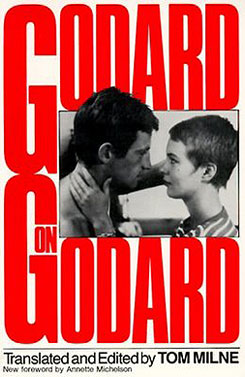
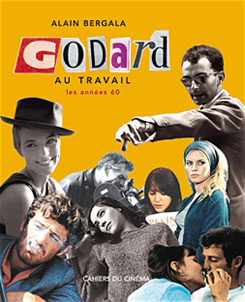
NCDC:
Is this where your subtitle, “The Working Life of Jean-Luc Godard,” comes from?
RB:
It’s a pun. Because his life is, happily, still being lived; so any life one writes of Godard at this point is provisional, “working” as in the sense of “working title.”
NCDC:
Is there any other filmmaker you could imagine giving the same treatment to?
RB:
That’s hard to say. There are a lot of other filmmakers whose work I’m passionate about, and would love to spend years being immersed in, if the opportunity presented itself.
But there are some people who are biographers per se: biography is their métier; they go from working on one figure to working on another figure. But I don’t have that sense. The subject of my work is the cinema. If I’ve written a critical biography of Godard, it’s because I think he’s certainly the most important filmmaker of the last fifty years, and one of the most important filmmakers ever. It’s because of my personal affinity, my personal devotion to his work, that I decided to write this book, even though I hadn’t really been a writer for very long before beginning it.
NCDC:
What drew you to Godard originally?
RB:
Well, my experience with Godard’s films and with cinema itself are almost coextensive. I grew up on Long Island, and went to the movies on Saturday night like everyone else. I saw Rollerball, Blazing Saddles… It was a diversion; I didn’t know that there was such a thing as “the art of the cinema.” There were “movies.” Of course, this was in the 70s, and there was really interesting stuff going on in Hollywood—but I didn’t know about it, and most of the people I knew didn’t know about it. To me at the time, Hollywood seemed more like an ambulatory Las Vegas: it seemed like my parents’ kind of entertainment, not mine.
Then I went off to college at Princeton University, intending to study philosophy. A guy I knew from talking philosophy – Justin Schwartz – invited me to a film screening, said he thought I would find it really interesting; I said OK; and it was Bergman’s Shame. I was impressed; I didn’t know there were films that had that level of ambition. My friend said, if you like that, there’s something playing a week later you ought to see—and it was Breathless. And seeing that was an experience that reoriented all my atoms. The two things I really cared about at the time were jazz and philosophy, and that film felt to me like jazz and philosophy on the wing. It felt to me like the movies were the art form that synthesized all the moods, all the feelings that excited me, that I dreamed of. To me it seemed like the epitome of modern art, the kind of art that I cared about.
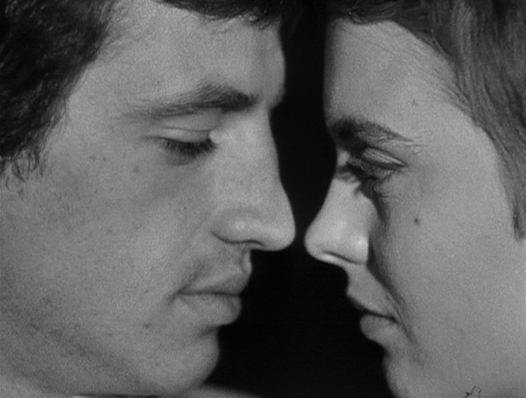
So after that I saw as many of Godard’s films as I could at the Film Society at Princeton. I also soon found, in a bookstore, a book called Godard on Godard, a collection of his criticism and interviews from the 60s. I thought, I’ll read this and I’ll know all about him. Well, in fact, the book doesn’t have a lot of Godard on Godard, but it has an awful lot of Godard on movies of all sorts, and Godard on music, Godard on literature, Godard on philosophy. And I used that book as a guide for what to see. If he talked about a movie, or put it on his ten-best list, I knew I had to see it. And that was sort of my launch into cinephilia.
So I spent my college years watching movies, and also trying to make them—Super8 films and things like that. I watched Masculine Feminine twenty times between the ages of 18 and 22. Now I understand why that film in particular appealed to me: it’s a young person’s film, but it’s the film of a young person alienated from his generation, a young person infused with the intellectual ambitions of someone from a generation older. Someone who feels himself to be uncomfortable in his time.
Youth & Politics
NCDC:
You write about how that film has a sociological element to it, recording fashions and youth culture trends that he feels a certain distance from. But ironically, he now often seems to be associated with some of those same fashions and trends he was satirizing, or recording, or simply trying to understand.
RB:
That’s exactly right. That’s one of the fascinating things about the reception of Godard’s films over time. On the one hand, because of his voracious documentary impulse, he records pretty much everything of interest that’s happening at the time. But he was critical: he was not a pop culture guy; he was a high culture guy who was touched by elements of pop culture, was curious about it, but was not in deep sympathy with it—on the contrary. He was attracted to it and at the same time sharply critical of it.
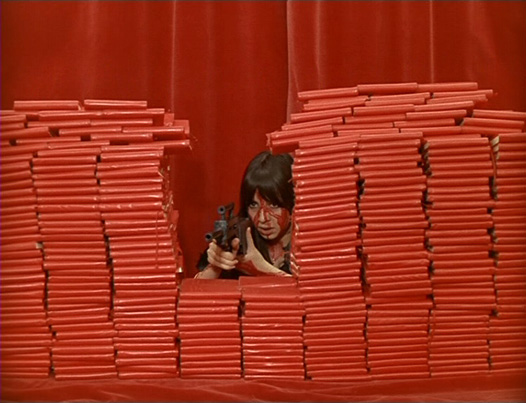
NCDC:
How about the student radicals in La Chinoise? On the one hand, he seems to be very earnestly trying to capture something that was going on in the French Left; but you watch the film now and it seems like a very broad parody. How do you read his tone in that film?
RB:
That’s one reason why it’s so interesting to look at the contemporaneous reception of the film. Raoul Coutard, Godard’s cameraman at the time, who had no political sympathy whatsoever with the young Maoists, said to Godard, “The one thing I have to tell you is you’re making them look ridiculous.” The Maoists themselves felt this way as well: they thought they were being held up to ridicule. But what’s really interesting, what Godard did that makes the film so proleptic, is that he fused these two things that weren’t really fused yet: namely, young Maoists and youth culture. The young Maoists at the time were really austere intellectuals: there was no sex, drugs and rock and roll among the young Maoists of Paris. But Godard nonetheless sensed that there was a crucial intersection between the trends of youth culture and this highly theoretical left-wing extremism that owed nothing to the traditions of the French Communist Party. He understood that there was something in the air. So, yes, the young Maoists were upset by the way they were depicted in the film. But for people who were a little bit older, or for that matter a lot older, they watched this film and said, “Hey, there’s stuff that’s going on that we had no idea was going on.” And they didn’t express this with fear—they expressed it with wonder.
NCDC:
You’re saying it’s like he’s creating a composite out of these two separate categories of French youth. But he was also able to create new trends, and types, in youth culture through his films, which were so influential. There seems to be a particular move that he’s making by casting someone like Jean-Pierre Léaud in La Chinoise, for instance…
RB:
The thing about Léaud is that, even though his background wasn’t that of an intellectual per se, I can’t think of an actor from that time who is more at ease, more convincing, playing an intellectual. He has an exquisite way of speaking that makes it sound as though every word that comes out of his mouth is coming from deep in his mind.
It’s interesting how Godard prepared him for La Chinoise, actually. The key to that film is that it’s set in a bourgeois milieu; Léaud is playing a young bourgeois who is also a Maoist. At the time Léaud lived a sort of bohemian existence, and Godard told him, “In preparation for this film, I want you to eat properly. I’m going to give you money so that every day you can sit in a restaurant and eat a decent dinner. And don’t spend that money chez Langlois—in other words, down at the Cinémathèque. He wanted Léaud to think about what it meant to sit down and have a proper meal every day.
NCDC:
What about the larger question of Godard’s relationship to America, which is obviously very vexed? I’m thinking of a quotation from 1988: “I have always detested America and adored the American cinema.” Do you get the sense that this is something that is really, as he says, always true of Godard, or does this tension evolve over time?
RB:
Well, in the earlier days of his career he didn’t speak explicitly about detesting America. You know he drove an American car—the one you see going into the drink in Pierrot le fou. He would travel to the States very spontaneously and bring bluejeans and sneakers back for Anna Karina. He thought of making films here, wanted very much to make films here: he thought of making a musical with Gene Kelly, William Faulkner and Karina. He planned to do a documentary about women in the United States in 1964.
Of course, politics had a lot to do with his changing attitudes towards America, at least in his public statements: he was really angry about the Vietnam War – justifiably – and to a certain extent that governed his feelings about the United States, starting in the mid-60s. Around the time of Pierrot le fou he said that he was so angry about Vietnam that he would mention it in every film. And then there’s a whole strain of anti-Americanism in French political and social thought: it’s as much a right-wing as a left-wing thing, and it often has as much to do with cultural mandarinism as it does with anti-capitalism.
But one interesting thing about Godard is how cinema-centric his worldview has always seemed to be. In the earlier films, the relationship to America was mainly through Hollywood; and as his relationship to Hollywood changed, his relationship to America changed, too. Partly because the studio system was collapsing, and he saw that the kind of American films that were coming over were just not as interesting as they had been; and partly because, for aesthetic and political reasons, he was beginning to criticize the Hollywood conventions he had inherited. In 1963 already he speaks about the declining fortunes of Hollywood in a roundtable discussion at Cahiers du cinéma. And for me at least, it’s with Pierrot le fou that he seems to really struggle with the loss of fealty to the Hollywood conventions he had inherited.
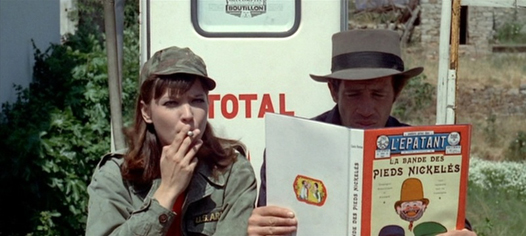
NCDC:
You seem least enthusiastic about the Dziga Vertov period, when Godard was exploring Maoist ideology and collaborating with Jean-Pierre Gorin.
RB:
I’m enthusiastic about the activities, but not about the films. I think the films are overdetermined by ideology. One of the biggest surprises working on the book was realizing what precisely Godard and Gorin did together, how intense their research and discussions were. But the real films that resulted came much later.
NCDC:
One film from this period that strikes me as particularly interesting, perhaps simply because it’s so much more static, less jolly than the films of the early 1960s, is Un film comme les autres…
RB:
Un film comme les autres was a specific reaction to a specific situation, the fact that the ‘68 uprising did not lead to a real revolution. “Why did the workers not join you?” was the question they were exploring.
The political ferment of May 1968 really struck Godard hard, as it did many people.
There’s something painfully and poignantly sincere about his response to the phenomena. While the overlay of ideology is numbing, and narrows his work, and strips him of much of his aesthetic, something big had happened. And his reaction bears the trace of the knowledge, the understanding, the intuition of this. It took a long time for just what it was that had happened to become clear. But he sensed a big break in history had taken place. And there were people who managed to surf on that phenomenon, and not have it change their way of life too significantly. And others threw themselves into it, in various ways.

So Godard is not the only one of his generation who was deeply engaged in the politics of May ‘68. But it cost him a tremendous amount. There was no great artist at the time who underwent as dramatic a change in his work and his life as Godard did. So, even if the films are not anywhere near his best work, they’re signifiers of his understanding that the world had changed, and that he needed somehow to catch up with it. And he did, of course. But it was a long process. And of course it goes hand in hand with something that was strictly cinematic. It’s very interesting that around 1966, around the time of 2 or 3 Things I Know about Her and Made in USA, Godard gave a bunch of interviews in which he said that the Hollywood model was completely dead, completely useless for French filmmakers. He recommended banning American films in France for a few years in order to relearn how to make films on their own again. And then he said, “I’m working toward something: I have an idea, it will take me four or five years to work it out.” In the event, it took him fourteen years to work it out. But he already understood that the work he had already done was a taking apart of the conventions, and that in order to continue working would require a sort of aesthetic reconstruction, which he would have to achieve on his own. And it wasn’t something he could decree into existence. He had to experiment it into existence. And I think the work he did with Gorin, which was happening concurrently with the films they actually made at that time, was in fact that experimentation, and so was his work, slightly later, with Anne-Marie Miéville. Ultimately, of course, that reconstruction was based on a systematic, analytical study of the history of film. His work on Histoire(s) du cinéma coincides with his return to the mainstream cinema.
It’s not a surprise that he left the film industry when he did. Significantly, he left at the end of 1967, before May ‘68 had happened. Even if it weren’t a matter of politics, he knew he needed to do something new, something different, to satisfy his own aesthetic urges. But he wasn’t sure what.
After ’68
NCDC:
After 1968, Godard – and other filmmakers, like Philippe Garrel – had a great deal of trouble getting any money from the government…
RB:
Yes, the government was in effect taking revenge on the “madmen” of ‘68. The New Wave was close to ‘68, and so in the years of backlash, the New Wave suffered from lack of financing. There were a few benefactors who made things happen every now and then, but by and large it was difficult. Most of Truffaut’s financing came from the United States, Rohmer’s came from Germany… And it wasn’t really until Mitterand and the Socialists came into power in 1981, making Jack Lang the minister of culture and bringing the generation of ‘68 into the government, that the New Wave really became canonized in France.
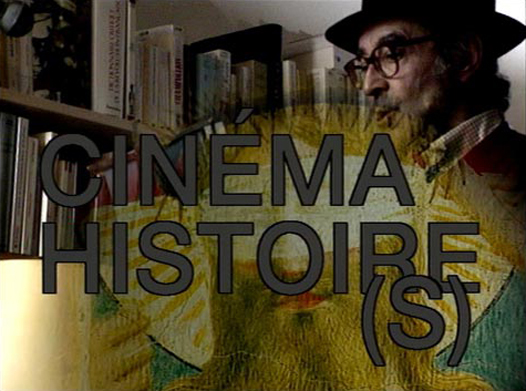
NCDC:
At a certain point, certainly by the time he starts to make Histoire(s) du cinéma, Godard begins to conceptualize himself as a scholar or scientist as much as a filmmaker. Do you think that’s a result of the American academic attention?
RB:
No, he’s always felt that there was a scientific, an analytical or philosophical, aspect to the cinema. That goes back to the beginning of his career. And he’s always been fabulously eloquent: an extremely smart man who speaks beautifully and has an awful lot to say. In the 60s, when his celebrity was at its apex, he was interviewed frequently; he was all over French newspapers and magazines, and even television.
As he got older, after he moved to Switzerland and was living at some distance from the French media capital of Paris, he became less profligate in his media interventions. So when he spoke he wanted it to be substantial. When Notre Musique came out and the French newspaper Libération wanted an interview, he told them he didn’t want to be interviewed by the movie critic, he wanted to be interviewed by the philosophy correspondent, Robert Maggiori—he wanted to talk about ideas.
It makes perfect sense, because now in France, as here, the cinema is universitized: you have a lot of people talking in an academic context about movies. And who is more qualified to do so than Godard?
Godard has been open about the fact that his rejection from the Collège de France, a research institution, really hurt him. You can understand why the deepest person on the subject of the cinema today, having been rejected from an institution that would be an ideal place for him to speak about it, would really affect him by giving him a sense that, even now, he’s something of an outsider. Of course, he has a reputation: some people think of him as the most anti-institutional person imaginable. If he were to take part in an institution he’d be questioning its foundations. But what is a philosopher supposed to do?
Godard is an absolute master of media. He has always understood how to use his public persona in the interest of his work; in that he had a great model, namely Jean-Paul Sartre. But he understood very early on that in order to make films that didn’t make money, he’d have to have celebrity: a persona that would take him a little bit outside the status of the commercial filmmaker.
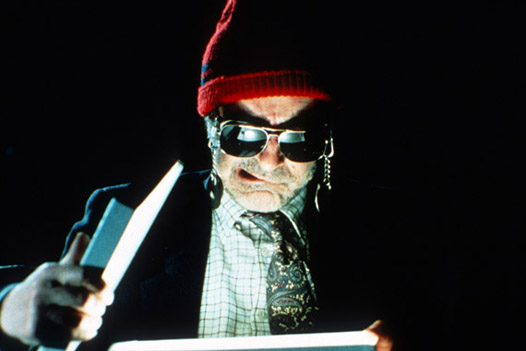
NCDC:
In a purely quantitative sense, Godard’s television work is the most substantial part of his career. But it’s incredibly hard to see in this country, and also not terribly widely discussed. One of the things that’s great about your book is that Godard’s work is discussed evenly: you don’t focus only on the 60s, which everybody talks about, but follow Godard through the 70s all the way up until 2004 and Notre musique. Do you think there will be a day when people will be flocking to “Godard’s 70s” or “80s” or “90s” the way they did to the “Godard’s 60s” retrospective at Film Forum recently?
RB:
Well, they just showed King Lear at BAM, and the organizers told me they had really good crowds. So the short answer is, sure, why not? Of course the films of the 60s are style statements in a way that his later films aren’t. But they’re artistic statements. His plastic sense, his way with images and his work on the soundtrack, are like no one else’s. He’s like a painter with a touch: a film by Godard is instantly recognizable. I think there is a relatively small but extremely enthusiastic audience for these movies.
So it wouldn’t surprise me in the least, despite the fact that so many of his later films were damned before they even got out of the gate. A film like For Ever Mozart, for instance, which was rejected by the New York Film Festival. Shocking.…
NCDC:
This combination of Godard of practical savoir-faire about making films – how to plan things, how to secure funding and arrange schedules – with a real spontaneity and commitment to improvisation and chance. “I want to remain faithful to my two inclinations, let’s call them the instinctive and the reflective.” On the one hand, he’s very industrious and dedicated; on the other hand, he seems almost incapable, even in times of desperation, of doing precisely what he says he’s going to do.
RB:
Well, the story he tells is that he was going to make Breathless in the classical way, but that when he sat down to write the script he didn’t like the way it was coming out. He had the framework of the story; that was clear.
Of course, one of the myths here is that it was completely free-form. He did have to meet a production schedule, more or less: they had locations and actors for certain days and not for others, for instance. Over the course of years, as he has realized how he wants to make films, he has tried to organize the production schedule differently, so rather than have actors there on Monday, Wednesday and Friday, there’ll be present for a full six weeks, even if he’s only using them on a handful of those days.
On Breathless, he just figured out heuristically – through the experience of making the film – that getting results that were desirable depended on having control of time, and of money. Few others have managed to work in a similar way.
NCDC:
It’s a little surprising, from an American perspective, how involved the state is in the French filmmaking process: the bureaucracy of submitting outlines, for example. How do you think this affected the films?
RB:
If you look at any French film, to this day, you’ll see the words “VISA DE CONTROLE.” The government authorizes a film’s release. You have to submit a script to get authorization to shoot. You also have to submit it to a pre-censorship board; and when the film is completed, it’s screened again by a censorship board that either passes it, demands cuts, or bans it altogether. That was the bureaucracy that Godard faced in the 60s.
Funding came in other ways: for instance, in the system that was in place in the 60s, an experienced producer could get automatic credit for having a production. That’s how Made in USA came about. George de Beauregard had run out of money on a film he was working on, but he knew if he started a new film immediately he could get credit, and Godard was the only person he knew who could put a film together quickly enough. He used the credit from Made in USA to bankroll his current film, telling Godard, “By the time we get to your film, we’ll worry about it.” So there was a system that did result in films getting made that might not otherwise have been made.
In recent years, he has had friends and advocates in the bureaucracy and in the business, and their support of him seems to be a blend of their sincere respect for him as an artist and their recognition of the publicity value of a Godard film.
NCDC:
Godard has played around with the idea of making films in America throughout his career, and is even reportedly now embarking on a Hollywood production of Daniel Mendersohn’s The Lost. What do you think about this?
RB:
When I first read about it, I have to admit that for an instant I felt a little bit like a physicist who had predicted the existence of a planet and then saw it.
The beauty of Daniel Mendelsohn’s book is that it’s not a “Holocaust book.” It’s a book about personal investigation by a family, and the firsthand reclamation of history—which is exactly the sort of thing that Godard is doing in Éloge de l’amour.
But it’s hard to know what to expect, since in the past when Godard’s adapted material he’s done so very freely.
NCDC:
How do you think Godard will do with the Hollywood financing structure?
RB:
I don’t know. But I imagine that this is how he made Contempt, which was different from his other productions in that he didn’t control the purse strings directly. Though that was a long time ago. I would assume that if he wants to make the film, he’ll find a way to make the film, and if it means working with a producer in a more classical way, he’ll work with a producer in a more classical way. He’s an artist, and he wants to get his work done.
Research & Reception
NCDC:
Your book focuses a great deal on the New York reception of Godard by critics like Richard Roud, Andrew Sarris, Jonas Mekas and Pauline Kael. I’m wondering if the famous Sarris/Kael debate over the auteur theory had any impact on your early reception of Godard?
RB:
That’s a very interesting question. When I was first starting to watch movies, under Godard’s virtual tutelage, I of course started becoming aware of what new movies were coming out and playing. I’d read reviews, and I found that the critic who was most useful to me was Andrew Sarris, who was writing for the Village Voice at the time. He made me want to see the movies he wrote about, and the ones he liked were usually pretty interesting. I didn’t grow up in a house that read The New Yorker – my parents weren’t intellectuals – but when I did get hold of it and heard people talk about Pauline Kael, I’d read what she had to say, and I didn’t think very much of it. I understood quickly that she was a good writer, of course; but I guess I felt when I was 17, 18, 19, full of piss and vinegar, I found something comfortable – in the negative sense of the word – in Kael’s reviews; as if she were writing very conspicuously from, I won’t say her class prejudices, but the assumptions of her milieu. It seemed to me that she was defending an aesthetic experience that was not the one I was seeking.
NCDC:
Some have criticized your book for being too New York-centric…
RB:
Well, most of the Godard films of the 60s and later on, into the 80s and 90s, the first and very often the only American screenings of films would be in New York.
NCDC:
What about the question of Godard’s influence on other countries, in Europe or the Third World? Did you consider including more information about that?
RB:
Yes. The problem is, to do that fully and appropriately is another book—which I’m working on now. It’s going to be about the influence of the New Wave on the contemporary cinema. I started working on the subject in the course of this book and found that it just spilled beyond the story of Godard’s career.
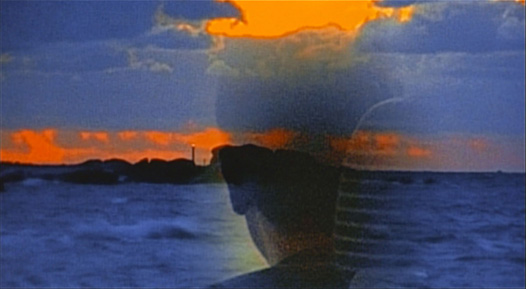
NCDC:
What were the biggest surprises in the course of writing the book? Were there films that went up or down in your estimation?
RB:
I started writing with the prejudice that Godard’s later work was better than his early work. One of the things that made me want to write the book was to give his later films their due, which they have never gotten. I think that King Lear and Éloge de l’amour are two of the greatest films in the history of cinema. I wanted to make it clear that he kept getting better.
But the films that really went up in my estimation were early ones, A Married Woman and Pierrot le fou. Of course, it’s a little odd that I didn’t esteem Pierrot that much in the first place—I guess I was always more struck by the indifferent and chaotic film noir elements, which balance out the intensely personal element. Watching it when I was a little bit older, I was quite moved by it; I also realized that Godard was feeling chaotic about the cinema. A Married Woman amazed me when I first saw it, when I was 18 or 19 years old, but it was very hard to get to see for a long time. But it’s really quite an extraordinary film. It has an intellectual bravado about it that’s very exciting, balanced by a heavy dose of pop culture. Simultaneously rigorous and bubbly.
NCDC:
One of the stickier points your book addresses is Godard’s possibly exploitative treatment of young girls in two of his mid-1970s films: Anne-Marie Miéville’s daughter Anne in Six Fois Deux and Camille Virolleaud in France Tour Détour Deux Enfants.
RB:
Understand that I’m not criticizing, or damning Godard. Art comes from dark places in our soul, and I agree with Fitzgerald when he says that the mark of a first-rate mind is the ability to hold opposing ideas at the same time and continue to function. It’s no surprise that he should make such a touching, sweet film about the problems of French children and at the same time be so insensitive to the feelings of this kid. It’s a cinema-centric insensitivity.
So the film has these contradictions in it. On the one hand, it’s quite revealing: it tells you a lot about this child and her milieu, what it meant to be ten years old in France in the mid-1970s. And at the same time, it also tells you that the concerns of the French child were not at the center of France in the mid-1970s. I’m absolutely not damning him: I’m suggesting that his art, like all art, comes from conflicting desires, impulses. And it’s perfectly normal that the conduct of an artist should render the people around him uncomfortable or unhappy. The art isn’t being made for their benefit.
Similarly, the question of his prejudices on the subject of Jews. It’s not a surprise that a man who has such prejudices should be the director who, besides Claude Lanzmann, has thought the deepest, the hardest and the best about the Holocaust in cinema. It’s precisely those conflicts that make his work on the subject meaningful and interesting.
NCDC:
And in your book, though it’s been criticized on this point, these issues seem very much a part of French culture generally, and not merely personal shortcomings of Godard’s: anti-Semitism, as well as the relationship to the Holocaust, to World War II. In his later films, it seems as if Godard is even deliberately pushing into these uncomfortable areas, performing a kind of therapeutic work.
RB:
“Therapeutic” is an interesting word. I hadn’t actually thought about it like that. Is he attempting to reclaim Robert Brasillach’s heritage, or is he attempting to make France face that heritage and see what it implies for contemporary French culture?
For me, that material was one of the biggest surprises in working on the book. At the time I began writing, Éloge de l’amour hadn’t come out yet; Notre musique hadn’t even been dreamt of. I had seen the first episodes of Histoire(s) du cinéma, and I was certainly aware of Godard’s notion of the Holocaust as a dividing line between the classical cinema and the “fallen” cinema. I’d seen Hélas pour moi and knew of its messianic or Kabbalistic implications.
But it wasn’t until I started doing documentary research, reading lots and lots of published interviews with Godard throughout the years, that I realized how much he thought about Jews. It was a big surprise to me: I hadn’t expected to find it. What was interesting to me is, if he hadn’t made films like Hélas pour moi, Éloge de l’amour, or Notre musique, if he hadn’t made the Holocaust the crux of his history of cinema, I might not have devoted as much space to his attitude toward Jews in the book. It was something that became interesting because of the films, which dealt so explicitly with themes he was also discussing in interviews.
It actually surprises me that this has been so controversial. I mean, the evidence is there. What would people have me do? Suppress facts?
NCDC:
You wrote in your original piece for The New Yorker about your own dealings with Godard.
RB:
I was extraordinarily grateful for the time he accorded me, and then very angry that he didn’t come back the next day. Not for personal reasons. For me it was about work: I was there to do a job, which involved two days of interviews, which he had agreed to. But I didn’t stay angry; it had no effect on the way I wrote about him, or the way I approached his work; ultimately it didn’t matter at all.
It’s very important when you’re writing about a person to maintain a certain distance… I quickly understood that not seeing him a second day actually helped.
NCDC:
Is there anyone you would have liked to talk to that you didn’t?
RB:
Jean-Paul Belmondo. Jean-Pierre Léaud. Anne-Marie Miéville, of course, but I understand why she didn’t want to.
I wanted to speak with Marina Vlady. She wouldn’t speak, and she subsequently published an autobiography.
NCDC:
The reaction to your book has been quite positive, but there are those who have – sometimes at length – delineated their grievances.
RB:
I frankly am truly gratified by the response the book has gotten, though of course there are some people who don’t like it. Some people just think of Godard as their daddy. They can’t bear to think of him doing or thinking things that they find unpleasant. I think it’s a peculiar kind of identification that Godard himself has fostered, and that has weighed heavily on him: the sense that through his physical presence in his work and his many public interventions, there’s this personalism in the reactions to his film. I think it’s why people cleave to the films so passionately, as they should, but these same people find it hard to accept that he is a human, as opposed to an absolute ideal.
But there’s a more interesting phenomenon, too, of the peculiar conjunction of politics and art. Sometimes you think that if certain writers found out that Alfred Hitchcock voted for Barry Goldwater in 1964 they’d drown themselves like lemmings. Why should you think that an artist whose work you love passionately should also agree with you on political and social matters of all sorts? Why should you assume that there’s a conjunction of aesthetic virtue, artistic talent and clean, rational, straightforward political progressivism? Why can’t you imagine that an artist you respect might actually hold positions that would frighten the hell out of you?
Of course, then there are the people who just don’t like Godard at all, who feel that had he vanished from the scene after making Breathless the world would be none the poorer for it. That’s just sad; if that’s how you feel, it means you’re missing out on some of the most interesting cinematic work of the last fifty years, and all of its tributaries.
But by and large I’m gratified that people find the book interesting. The one thing that I hope comes through is that I’m trying to do honor to the work, to make it clear that it is indeed the greatest body of work we’ve got in the cinema, and to show some of the depths of experience that make it so.
Neo-Neo-Realism & Mumblecore
NCDC:
You’ve written, in a review of Wendy and Lucy, about the cinema’s inherent “subjectivity and personalism.”
RB:
I think that’s true of everything. Your work carries over into your private life, and vice versa. That’s always been true.
I suspect that it’s one aspect of modernity to render that explicit. There’s also the opposite aspect, of course, which would deny it altogether, and make highly formalized, impersonal works.
But one trend of modernism is reflexivity: making clear the personal connections to the work. It’s not a surprise that these modernists who became the directors of the French New Wave were enthusiasts of the politique des auteurs, where they saw the directors as characters, as individuals in the films that they were watching, and that they went on to make very personal films.
NCDC:
This question of subjectivity also informs your debate with A.O. Scott about “neo-neo-realism.”
RB:
It’s always tough being first, and I really admire the fact that Scott wrote that piece in the first place. He took a stand, and I greatly respect his putting forth a position about the kinds of films he likes and cares about. That’s an admirable thing for a critic to do.
There are lots of ways to make films, and it’s not that a personalized film is better than a non-personalized film. But I feel that there are people who think of “reality” in an extremely narrow sense, in terms of political or social issues of the day. My argument is basically that reality is big as hell. Love is as much a piece of reality as politics, history is as real as current events, the life of a person with money is not any more false than the life of a person without money. I felt that there was a certain definition of “reality” that was emerging Ñ not just in Scott’s piece, but in other reviews of films like Wendy and Lucy, Ballast, and Frozen River. What Scott wrote exemplified that trend in such a clear way that it immediately elicited a long and rapid response from me. I wrote that response in an hour. About the time it took to type it.
There are lots of ways to make good movies. I’m not sure it does any good to be doctrinaire about “realism.” I think of The Curious Case of Benjamin Button as a very realistic film, because through its artifice it renders very palpable a phenomenon that most films don’t, namely the course of time. Time is just as real as anything else, even though you can’t put your finger on it.

NCDC:
I’m particularly interested about your defense of mumblecore, especially the films of Joe Swanberg. How did you come by them?
RB:
For me, the films were there before the term was there. I didn’t know that there was a movement. What I knew is that, in 2005, there was a film called Funny Ha Ha coming out. The title struck me as curious, and I wanted to see the film. Normally I see a lot of current movies, but while I was working on the book I couldn’t: I was holed up at home, or at the New York Public Library, or traveling for research. So I saw Funny Ha Ha, along with a lot of other things, to catch up with what I’d missed. And I thought it was terrific: I thought it had a unique feel and mood, and I wrote about it enthusiastically. One of the things I enjoyed about both that film and Mutual Appreciation was the sense that he was filming his milieu, his friends. I felt that these films were sincere without being sloppily confessional, and that they were representing in an intelligent way things that were both his own and universal enough, that spoke to experiences far beyond his own.
The whole idea of “mumblecore” didn’t mean anything to me until those screenings at IFC in 2007. I was out of the country when it took place, but I was lucky enough to be provided with screeners, and I just watched these things with enthusiasm. Each filmmaker was imprinting both his own aesthetic and his own experience on these films. The aesthetic is what makes it good: Swanberg is a good director. (Bujalski is a good director too, but there’s less controversy about that, which is why I put Swanberg first.) He organizes his material really well. And anyone who’s ever worked with improvising actors knows that it’s much harder than it looks, and that to get an improvised performance that’s narratively channeled is not easy to do. It’s easy to get actors to improvise – that’s their training these days – but it’s not easy to get them to stay on the road. And Swanberg has a sense of narrative structure, where he gives them just enough to keep them in the right place, and not too much to overdetermine them. It’s not as easy it looks; I think he achieves something that’s quite difficult to achieve.
NCDC:
It’s amazing what a negative reaction mumblecore can elicit from critics.
RB:
This is the kind of ad hominem move people use to pre-empt criticism, but very often you scratch a critic and find a frustrated filmmaker. And a guy like Swanberg has developed a system: he’s made five films in three years. And they’re good! For people who have written screenplays, who are shopping them around, trying to raise funding, that must be frustrating as all hell. This guy manages to work for next to nothing with really good actors, get really good performances, and get his films out there. He is a living reproach to 95% of all aspiring independent filmmakers.
Look, I shot an independent film. I’m a failed filmmaker: happily failed, because I knew that I wasn’t very good even at the time. I find what I do now much more gratifying. But shooting my film for $60,000, in our own way we reproduced a Hollywood production structure. I spent a long time trying to find that money, and then having found that money, it imposed certain structures on the making of the film. The production to which I was subject dominated whatever kind of direction I was trying to do. One mark for me of a really good filmmaker – and this is a crucial aspect of Godard’s work – is that they think production as much as they think direction. The way you go about making a film, the role the money plays, the role the schedule plays, the organization of the film, is as determining in the result as the aesthetic choices that are your original motive for making the film.
We don’t do comments anymore, but you may contact us here or find us on Twitter or Facebook.



